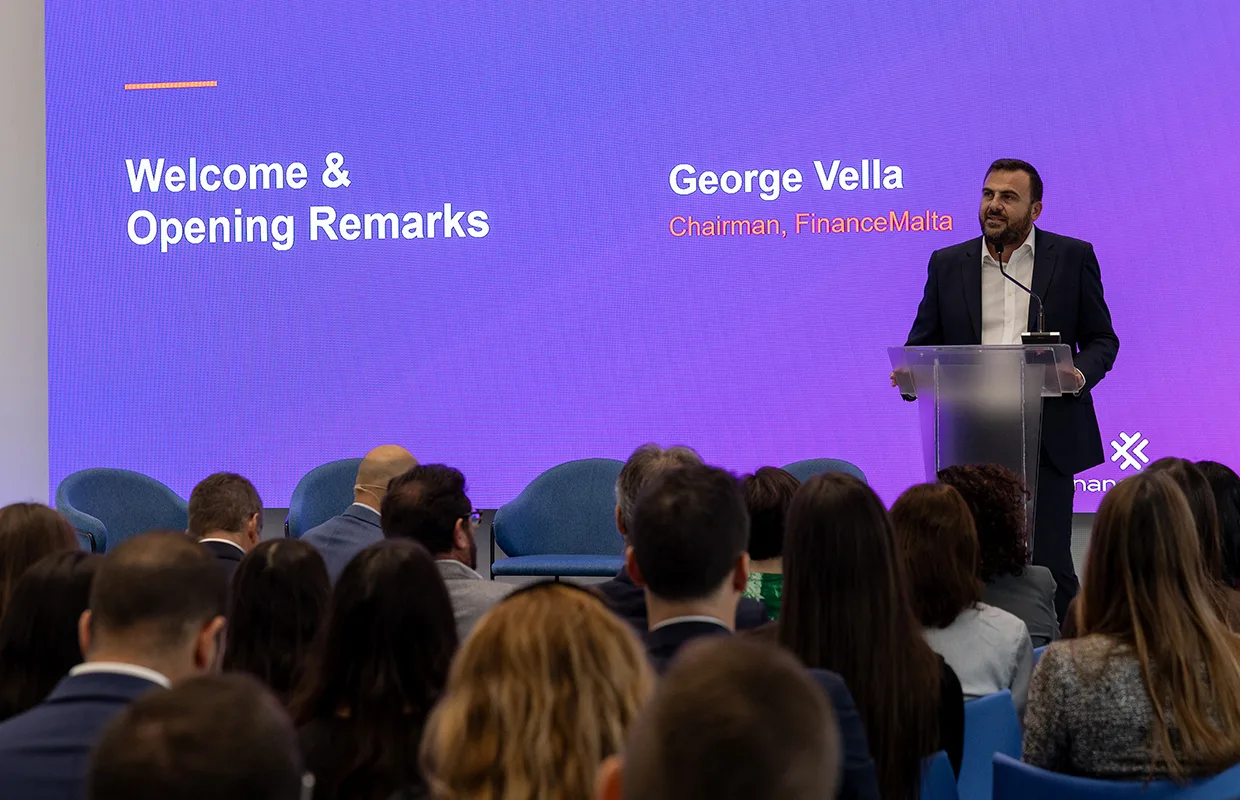Malta may be one of the world’s smallest countries, but it is also a vibrant financial hub where FinTech start-ups, fund managers, insurance firms, payment providers, and family offices co-exist and thrive side-by-side.
SPOTLIGHT ON FINANCE IN MALTA
Located at the heart of the Mediterranean, between Europe and North Africa, Malta has become deeply integrated in the world of finance.
Famous for its 7,000-year history and 300 days of sunshine a year, the island has emerged as one of the most remarkable success stories in the Eurozone.
Malta’s pro-business attitude, state-of-the-art infrastructure, and modest costs of doing business have led it to become the go-to country for growth-minded entrepreneurs and multinational companies.
Despite its small size, the nation has made the conscious decision to support a variety of financial activities and specialist segments, including a rich mix of international, regional, and local institutions.
Today, asset management, insurance, banking, private wealth, and FinTech are the dominant forces of the nation’s finance industry.
Moreover, aviation, yachting, maritime services, capital markets, space finance, and sustainable finance are also playing important roles.
This diversity is building a path to prosperity, paving the way for Malta to thrive and promote cross-sector partnerships and cooperation amongst companies operating from within the country.
The nation progressively aligns itself with global standards in the realm of international finance today.
As such, from Malta, financial services companies can now readily access the EU’s massive single market of over 500 million people.
In addition, the island enjoys a vast network of more than 70 double-taxation treaties, covering most of the world’s high-growth markets, facilitating trade and international business.
Malta is also a major transhipment hub, with the Malta Freeport Terminal being one of the most efficient and successful freeport operations in the Mediterranean.
Almost all goods being shipped through the port or re-packaged for onward shipment now do so tax-free.
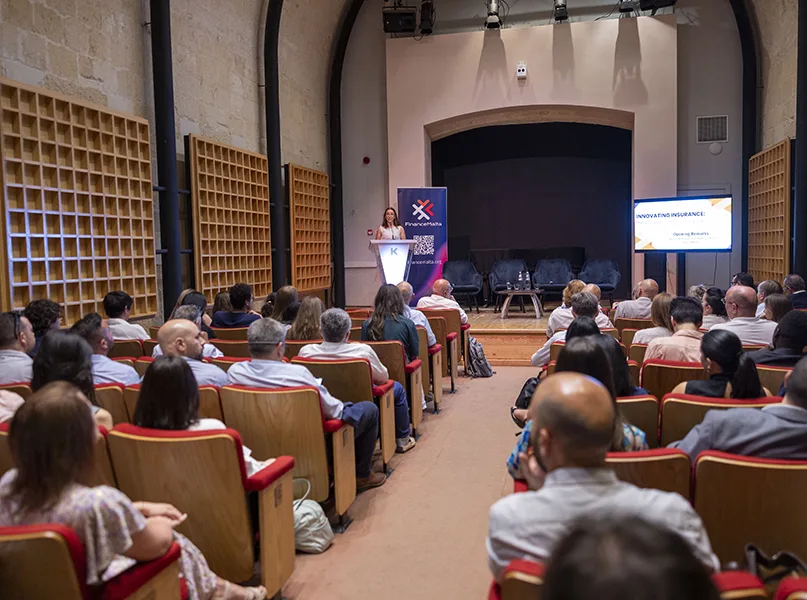
Meanwhile, moderate operating costs coupled with a highly-qualified population and a desire to support innovative ideas has positioned Malta as the ideal location for small to medium-sized enterprises (SMEs), regional headquarters, back-office functions, and fast-growing FinTech firms to prosper.
Furthermore, as a finance centre, Malta has also become internationally recognised as a thought leader, championing the introduction of cell company structures, which today are an important element in the captive insurance sector.
Boasting sophisticated ICT infrastructure that is well connected to the international backbone of Europe’s network, high broadband penetration, and a competitive market with the latest technologies, Malta now offers the perfect environment for business.
Another advantageous factor is that friendly relationships exist between the island and its Mediterranean neighbours. Through bilateral agreements between Malta and the EU with third countries, and as a result of Malta’s traditional economic links, the country continues to strengthen its position as a business location and financial centre in the region.
More than just a smart place to invest, Malta is the multifaceted gem of the vibrant Mediterranean. This friendly and welcoming island contains everything needed to strike the perfect balance between business and pleasure.
It offers a variety of lifestyle choices that range from urban, cosmopolitan, and luxurious to relaxed and rural.
Boasting shopping, cultural, and leisure activities, all at affordable rates, Malta also provides expatriates with a unique opportunity to live every aspect of life to the full.
Globally, the financial services industry is approaching a new digital frontier, and with a keen eye on the future, Malta has set itself the ambitious target of providing financial firms with a technologically advanced, top-tier regulatory and business environment.
The clear aim is to be a global player in the regulated digital finance and FinTech space.
For now, Malta’s unquenchable thirst and active appetite for innovation will undoubtedly continue to power its growing financial services sector.
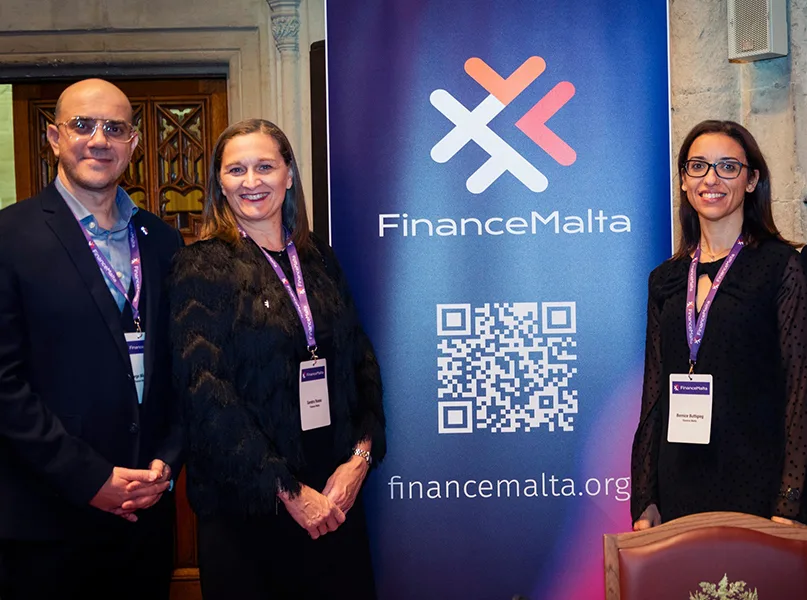
Q&A WITH FINANCEMALTA
Created in 2007, FinanceMalta is the public-private initiative set up to promote Malta as an international financial centre within, as well as outside, the nation. We catch up and learn about all the latest developments with Chairman, George Vella.
FinanceMalta brings together and harnesses the resources of both industry and government to ensure Malta maintains a modern and effective legal, regulatory, and fiscal framework in which the financial services and FinTech sectors can continue to grow and prosper.
The organisation arrived on the scene at a critical time for the nation, just as Malta entered the Eurozone. Fast forward to today and the financial services sector is now a major force in the country’s economy.
Malta possesses numerous significant strengths to offer the industry, such as its highly-qualified, motivated workforce, low-cost environment, and an advantageous tax regime backed up by more than 70 double-taxation agreements.
On top of these benefits, FinanceMalta now offers world-class ICT infrastructure, English as an official language, an enviable climate, and a strategic location.
Firstly, could you provide us with some insight into your career to date and explain how you became interested in the finance industry?
George Vella, Chairman (GV): It’s been quite a journey from a very young age to where I am now.
I don’t come from a business family but grew up surrounded by a family of professionals. Early on in life, I knew I wanted to take my own unique path into something that no one else in my family wanted to branch out into.
As soon as I started studying the area of finance, it immediately felt like my natural home, and after a lot of hard work, I took on several very interesting roles, notably as Finance Director of a hotel chain, which then transitioned into a central treasury role where I’ve thankfully learned a lot.
During a brief interlude, I spent some time working for a local bank which was an interesting and valuable experience. After that, I was lucky enough to have the opportunity to build a financial advisory practice from scratch which is still thriving today and something I am very proud of.
Three years ago, I was also asked to chair FinanceMalta, a public-private partnership between the financial services industry and the Government of Malta.
It acts as the extended business development arm of the entire financial services industry, which means my role carries a lot of responsibility – an honour I gladly accepted.
I feel that the country of Malta and the profession I practice has been so kind to me personally and to many of my colleagues – I owe both a huge debt of gratitude.
Simialrly, whenever the country, fellow professionals, or the sector asks for something, I cannot say no.
Now, when I see all the great opportunities coming our way and the incredible transformation that is happening in our respective industries, I remain very enthused by what’s happening.
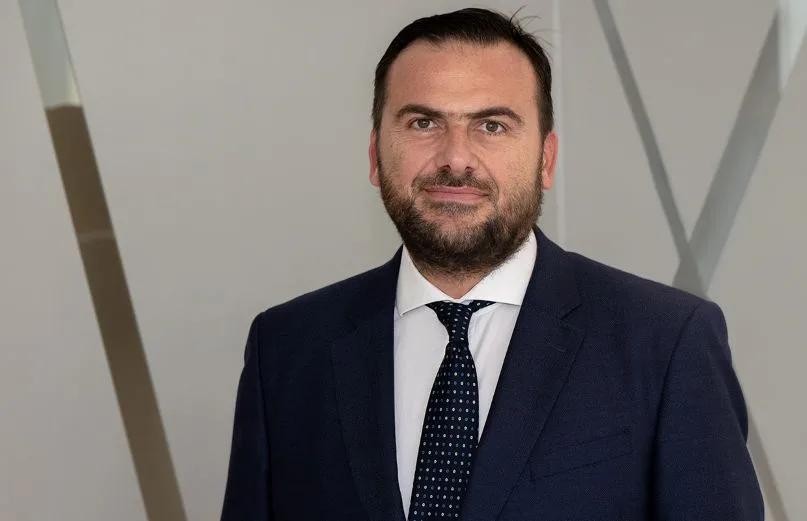
“At present, we are seeing FinTech really take off, in a comparable way to successes we have previously observed with financial services, gaming, and digital services”
George Vella, Chairman, FinanceMalta
What is your take on the finance landscape in Malta over the last year? Have you identified any recent trends developing since we last spoke?
GV: At present, we are seeing FinTech really take off, in a comparable way to successes we have previously observed with financial services, gaming, and digital services.
At the core of Malta’s economic success, the nation is applying the same ingredients to several very similar complementary service industries and, time and again, it’s thankfully very clear that the financial proposition the island offers remains highly attractive.
Meanwhile, one big trend developing in the last year is the huge success we have witnessed with the EU’s new Markets in Crypto-Assets (MiCA) regulation.
This new directive has led to a significant number of applications being submitted to the Malta Financial Services Authority (MFSA), the local regulator.
As such, we are currently witnessing a number of both local and foreign entities choosing Malta as their natural home, who we embrace with open arms.
If you look at our economy compared to other more traditional examples from the rest of Europe, we are very service-based. This dependence accounts for 87 percent of our GDP, and we also have a surplus on these services, meaning roughly 30 percent of what we do is exported to other countries.
Additionally, when you’re exporting, you are earning foreign cash, which is always extremely important for economic policy.
Another big trend that we are seeing – and which will be occupying much of our time and energy in the coming years – is the digital transformation of traditional businesses, such as law and accountancy firms, and any other professional services within the financial services realm.
It has been predicted that we won’t even recognise how these services will be offered in the future and we’re slowly but surely seeing that many of the operators are smelling the vast opportunities available and doing what needs to be done to achieve this game-changing digital transformation.
Moving forwards, we will also do our best to continue increasing our attractiveness for wealthy individuals who decide to allow us to administer their finances effectively.
“When a person decides to visit for business, leisure, or to make Malta their second or new natural home, they will quickly discover we are a very small cosmopolitan island with lots of fun to be had”
George Vella, Chairman, FinanceMalta

What are the organisation’s key differentiators and most valuable qualities?
GV: A key differentiator, and one which has been widely recognised across the sector, is the versatility afforded by the local legislative framework to those who use Malta as a logistical and jurisdictional base.
Moreover, our jurisdiction and legislative framework is second to none. There are historic reasons for this as, until 1964, Malta had always been occupied by a variety of very influential European forces.
Over the years, this cultural mix left an imprint on the nation’s legal system, significant parts of which can still be seen today in the form of principles bestowed into Malta’s legal framework from both French and English rule.
Elsewhere, the Malta Ship Registry is used for ship finance through mortgages and other security interests, which are recorded in the registry to provide legal certainty for financiers.
Our legal framework, modelled on British maritime traditions, allows for the registration of mortgages over vessels, creating a special charge on a ship that can be enforced even if the vessel is under charter.
The effectiveness of our courts of law – coupled with the fact we are English-speaking, a member of the EU, and possess a very nice climate – combine to make us a burgeoning proposition.
When a person decides to visit for business, leisure, or to make Malta their second or new natural home, they will quickly discover we are a very small cosmopolitan island with lots of fun to be had.
I believe we possess an attractive overall package for anyone that decides to visit.
Could you tell us about the upcoming edition of the FinanceMalta Annual Conference later this year and the importance this holds?
GV: The flagship FinanceMalta Annual Conference reviews sector performance, regulatory updates, and growth priorities across banking, funds, FinTech, and insurance. It is the must-attend forum for anyone shaping Malta’s financial-services agenda.
Our 18th edition of the conference, held between 19th and 20th November, has secured record support from the industry, with 45 firms confirmed as sponsors for the sector’s flagship meeting point, reflecting the increasingly strong confidence in Malta’s financial services ecosystem.
This investment ensures that the conference is not only entirely industry-funded but also built by and for the sector, making it a truly collaborative platform.
We are really excited for the conference to map out where we are in terms of progress with several significant and exciting future projects, one of which includes the digital transformation of tax returns and collection of taxes in Malta, collating all data into one unified system.
“I am most proud of our people – it is only a very small team, but they always go the extra mile or more every single year without fail”
George Vella, Chairman, FinanceMalta
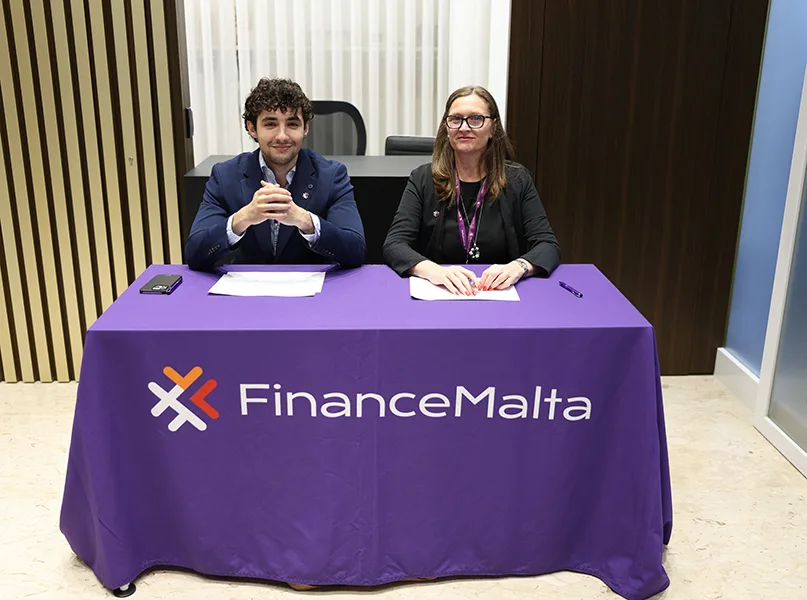
Finally, what element of the organisation are you most proud of?
GV: I am most proud of our people – it is only a very small team, but they always go the extra mile or more every single year without fail.
With only six spokespeople, we have managed to be present at over 50 events internationally and have also organised several events ourselves. Right now, our membership base is growing significantly because of the value being brought to the table.
We’ve managed to increase our income, not only from our members and private entities, but also from government, meaning we have doubled our budget.
I believe this is all an indication that what we’re doing is creating significant value for our members and the jurisdiction. Therefore, it fills us with even more responsibility to deliver more and continue our forwards momentum.
We try to stay in contact with both the founding bodies of FinanceMalta and our stakeholders, which is always a balancing act because you’re trying to negotiate and serve everyone’s interest.
Yet, in some shape or form, we seem to be doing that because we are seeing our membership and the number of people attending our conferences grow alongside the wider financial services sector.
Last year, Malta embarked on a revision of its entire strategy for the country and, based on the successes that we’ve seen so far, it looks like this has convinced the strategy-setters to ask for more from our financial services sector.
This strategy is based on the assumption that we will continue to grow at an even greater pace, which marks a huge vote of confidence – we will do our very best to fulfil these ambitious targets.
FINANCEMALTA PARTNERS




